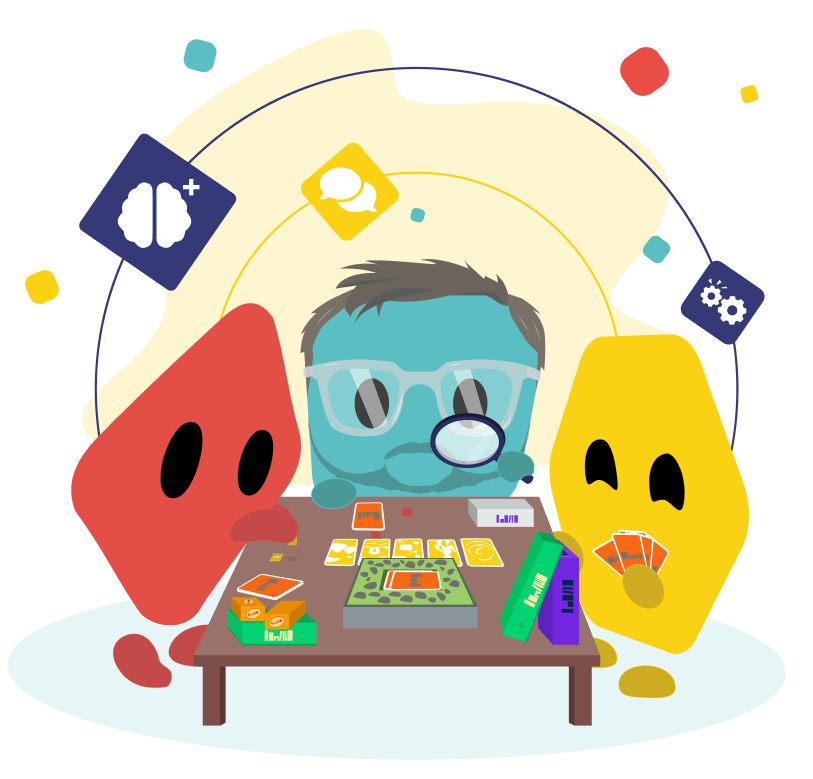- Project
- Completed
Hidden cognition in board games

Ben Dyson Associate Professor of Cognitive Psychology
Ben Dyson is an Associate Professor of Cognitive Psychology at the University of Alberta, Canada. His research focuses on complex decision-making in simple game situations, and on electrophysiological responses. His work lies at the intersection of research, teaching and outreach. Ben Dyson is also very involved in the popularization of science.
-
Project start date :
2023/01/02 -
Status :
Completed -
Research organization :
Université d’Alberta -
Team :
/
In 2022, Game in Lab selected Ben Dyson’s project to examine the links between playing board games and cognitive psychology experiments. This project highlights the analogy between assessing cognitive skills in a scientific context and using cognitive skills in board games.
Project overview
There is an analogy between scientific experiments measuring cognitive processes (memory, perception, decision-making, etc.) and board games involving a variety of cognitive skills. Therefore, this research project aims to reveal the connections that exist between board games and science. It highlights how major principles of cognitive psychology can be observed when board games are played and can lead to learning. Given the importance of implicit learning (here, learning by playing) for deep rather than superficial learning, this study aims to promote board games as a source of societal and educational values.

Methodology
There are two stages:
- The tasks and stimuli of selected board games, implementing demonstrated principles of cognitive psychology, are analyzed
- The cognitive skills used in a game and an experimental version evaluating the same skills are compared
Outcomes
The cognitive principles widely observed in the literature are also found in board games. For example, it is easier to move from a difficult rule to an easy rule than vice versa, in both a scientific experiment and in a game. Therefore, board games can serve as a way to observe cognitive processes in a social context that is often absent in scientific experiments.